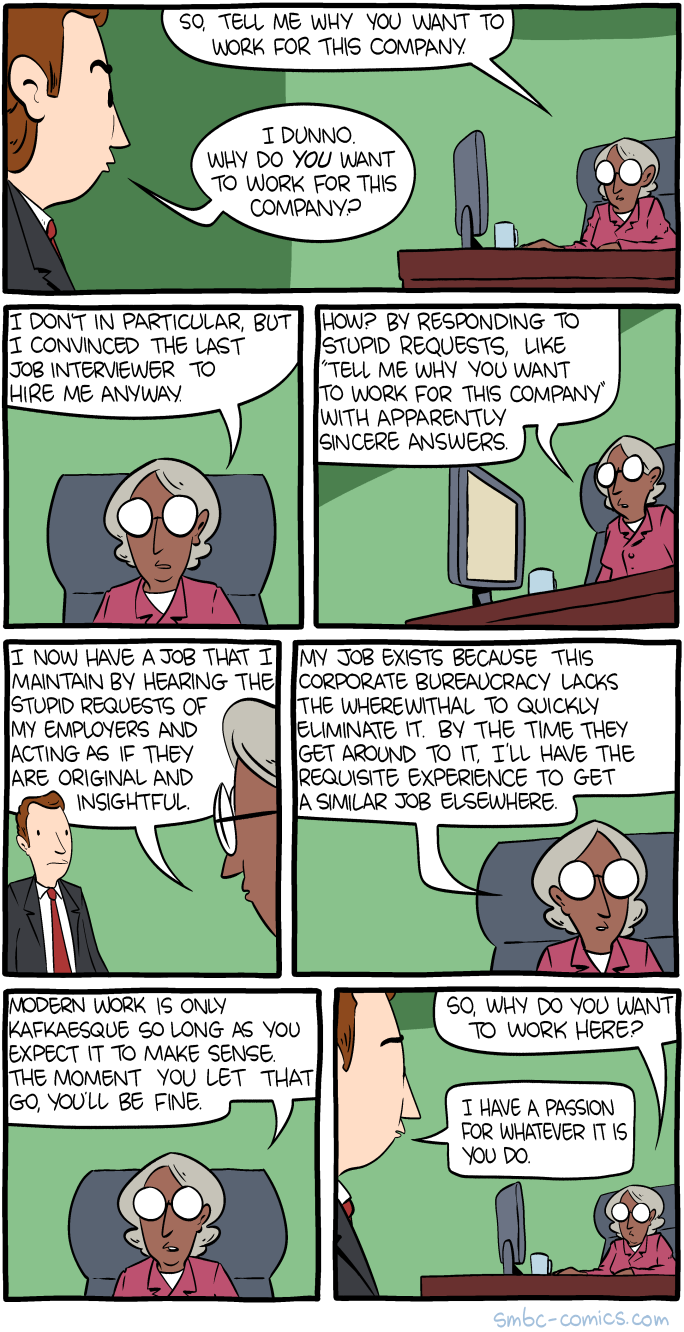Sunday, 27 August 2017 - 5:42pm
This week, I have been mostly reading:
- Copyright Agency diverts funds meant for authors to $15m fighting fund — Peter Martin, in the Sydney Morning Herald, via Pirate Party Australia:
The Copyright Agency is the only body authorised to collect copyright fees from schools and universities on behalf of authors, illustrators, artists, photographers and publishers whose work is copied. It has been criticised in a Productivity Commission review that is before the government over the transparency of its accounts and its practice of retaining, rather than returning, millions of dollars collected from schools and universities on behalf of the owners of "orphan works" who can't be traced. […] An examination of its accounts shows that in a change not disclosed to the commission or to its members in annual reports, since 2013 it has been channelling that income into a fund set up to campaign against changes to the copyright law.
- Why do you want to work here? — Saturday Morning Breakfast Cereal by Zach Weinersmith:

- You're probably confused about your media usage rights, and media companies are ok with that — Zak Rogoff at Defective by Design:
When people buy an ebook, do they expect to be able to read it for the rest of their lives? How about the ability to make a backup copy of a movie before their hard drive breaks? For most digital media purchases, these reasonable activities are prevented by DRM (Digital Restrictions Management), but it appears the vast majority of customers don't know it.
- Economics 101 for the NYT: Unauthorized Copies Are Not Necessarily "Counterfeits" — Dean Baker:
For an item to be counterfeit, the buyer must be deceived. […] consumers who knowingly buy unauthorized copies of major brands are benefiting from the opportunity to buy the copy at a lower cost than the brand product. They presumably are willing to trust the quality of the product produced by the knock-off manufacturer, given the savings.
- Obama to Hillary: Here’s How You Sell Out — Ted Rall:

- Why 'A Domain of One's Own' Matters (For the Future of Knowledge) — Audrey Watters:
I’m pretty resistant to framing “domains” as simply a matter of “skills.” Because I think its potential is far more radical than that. This isn’t about making sure literature students “learn to code” or history students “learn to code” or medical faculty “learn to code” or chemistry faculty “learn to code.” Rather it’s about recognizing that the World Wide Web is site for scholarly activity. It’s about recognizing that students are scholars.